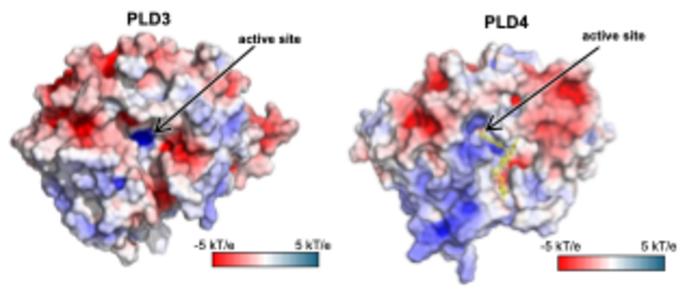Could Strawberry Tree Extract Offer Prevention and Treatment for Gastrointestinal Disorders?
Recent scientific investigations conducted on rodent models have unveiled promising therapeutic potential for a Mediterranean native plant, Arbutus unedo, commonly called the strawberry tree, in the context of ulcerative colitis—an inflammatory bowel disease characterized by chronic inflammation and ulceration of the colon lining. This groundbreaking research, published in the Journal of the Science of Food […]


Recent scientific investigations conducted on rodent models have unveiled promising therapeutic potential for a Mediterranean native plant, Arbutus unedo, commonly called the strawberry tree, in the context of ulcerative colitis—an inflammatory bowel disease characterized by chronic inflammation and ulceration of the colon lining. This groundbreaking research, published in the Journal of the Science of Food and Agriculture, offers fresh insights into alternative treatment strategies that could address both the symptoms and underlying inflammatory processes associated with this debilitating gastrointestinal condition.
Ulcerative colitis generally necessitates long-term management involving various antioxidant and anti-inflammatory pharmaceutical agents. However, these medications often carry the drawback of unwanted side effects that can complicate patient compliance and quality of life. In this light, natural products with antioxidative and anti-inflammatory capabilities have garnered increasing attention for their potential to serve as safer adjuncts or alternatives to conventional therapies.
Researchers from the University of Jendouba in Tunisia undertook a controlled study wherein rats were administered preemptive doses of an extract derived from Arbutus unedo. Subsequent to this pretreatment, the animals were exposed to acetic acid, a chemical agent known to induce experimental ulcerative colitis that mimics many pathological features observed in humans. This experimental design allowed the team to precisely evaluate the protective effects of the plant extract prior to the onset of colonic injury.
Histological analyses revealed that rats pretreated with Arbutus unedo extract exhibited remarkable preservation of colon tissue architecture, with a significant reduction in mucosal damage compared to untreated controls. The colonic lining remained more intact, and there was a conspicuous decrease in the formation of lesions, which are hallmark indicators of colitis severity. These morphological improvements strongly indicate that the plant extract confers a protective barrier against chemically induced inflammatory insults.
Biochemically, the extract’s influence extended to modulating molecular markers associated with oxidative stress—a major driver of inflammatory tissue injury. Specifically, the pretreatment substantially downregulated the expression of proteins and enzymes that facilitate the production of reactive oxygen species (ROS), thereby mitigating the oxidative burden on colon cells. This action interrupts the cycle of tissue damage perpetuated by unchecked free radical activity during ulcerative colitis.
Further examination uncovered the plant extract’s robust anti-inflammatory properties at the molecular level. The expression of pro-inflammatory cytokines and signaling molecules, which typically exacerbate mucosal inflammation and recruit damaging immune cells, was significantly diminished following pretreatment. This dual effect of reducing both oxidative stress and inflammation suggests a comprehensive mechanism through which Arbutus unedo exerts its therapeutic benefits.
Notably, the study underscores the potential of Arbutus unedo as not only a treatment modality but also a preventative agent. By administering the extract prior to chemical injury, researchers demonstrated that it may enhance the colon’s resilience and ability to withstand inflammatory triggers. This positions the plant as a promising candidate for developing prophylactic interventions aimed at reducing the incidence or severity of ulcerative colitis flare-ups.
Critical to understanding these outcomes is the phytochemical composition of Arbutus unedo. The strawberry tree is rich in polyphenols, flavonoids, and tannins—all bioactive compounds with documented antioxidant capacity. These molecules can scavenge harmful free radicals, chelate pro-oxidant metals, and modulate intracellular signaling pathways involved in inflammation. The synergy among these constituents likely underpins the protective effects observed in the study.
While the findings in rat models are compelling, translation to human clinical practice necessitates cautious progression through rigorous trials. Dose optimization, bioavailability, safety profiling, and efficacy evaluations in human subjects remain essential subsequent steps. However, the compelling evidence provided by this research lays a critical foundation for the future inclusion of Arbutus unedo in integrated therapeutic strategies for ulcerative colitis.
Moreover, this work contributes to a broader scientific dialogue emphasizing the significance of plant-based natural products in managing complex chronic diseases. By pairing traditional ethnobotanical knowledge with contemporary biochemical methodologies, researchers can continue to uncover novel bioactives that may revolutionize treatment paradigms.
The study also opens avenues for exploration into related gastrointestinal pathologies where oxidative stress and inflammation play pivotal roles, such as Crohn’s disease and colorectal cancer. Investigating the versatility of Arbutus unedo extract across these conditions could reveal broader applications and foster the development of multi-targeted botanical therapeutics.
In summation, the protective preconditioning afforded by Arbutus unedo extract articulates a promising intersection between natural product research and translational medicine. This innovative approach highlights the value of exploring region-specific flora for their medicinal properties, leveraging biodiversity to address unmet clinical needs in inflammatory bowel diseases.
Soumaya Wahabi, PhD, the study’s corresponding author, emphasizes that these findings warrant more extensive research focusing on both preventive and therapeutic roles of Arbutus unedo in gastrointestinal disorders. Expanding our understanding of this plant’s impact could ultimately translate into novel, effective, and safer treatment options for patients suffering from ulcerative colitis worldwide.
Subject of Research: Protective effects of Arbutus unedo extract on ulcerative colitis in rat models.
Article Title: Protective Effects of Arbutus unedo Extract on Acetic Acid-Induced Colitis in Rats: Histological, Biochemical, and Antioxidant Assessments
News Publication Date: 21-May-2025
Web References:
Journal of the Science of Food and Agriculture
DOI: 10.1002/jsfa.14317
Keywords: Ulcerative colitis, Inflammatory bowel diseases, Oxidative stress, Rat models, Animal models, Trees
Tags: anti-inflammatory alternative therapiesantioxidant properties of plantsArbutus unedo health benefitsgastrointestinal health solutionsinflammatory bowel disease researchlong-term management of ulcerative colitisMediterranean medicinal plantsnatural remedies for gastrointestinal disorderspharmaceutical alternatives for inflammatory diseasesrodent model studies in medicinestrawberry tree extractulcerative colitis treatment
What's Your Reaction?

































